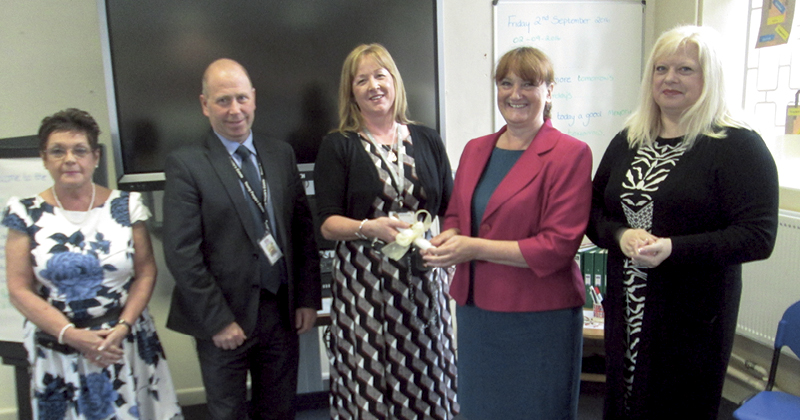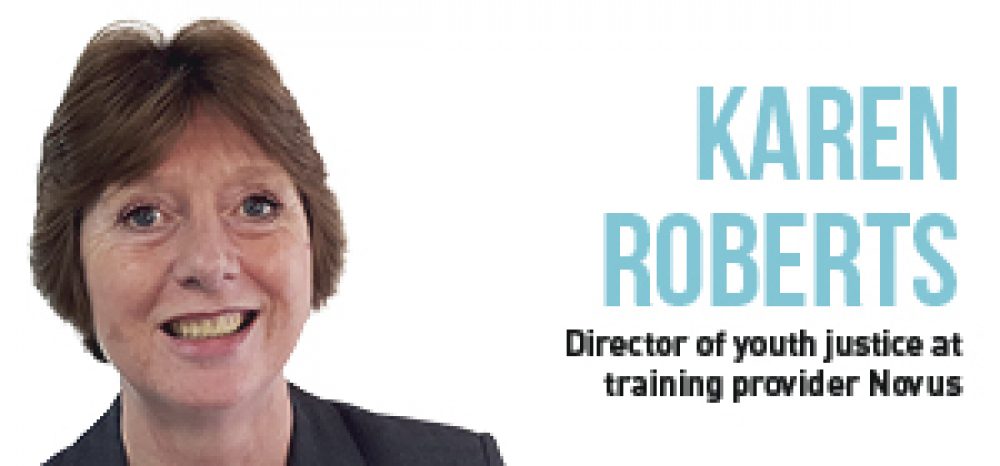To successfully create inclusive spaces for those with learning difficulties, the entire organisation needs to be brought on-board, says Karen Roberts.
While dyslexia is estimated to affect around 10 per cent of the general population (four per cent severely), the figure is estimated at around one third in young offender institutions.
If colleges and FE institutions are not dyslexia-friendly, it may well be that learners and staff are not reaching their full potential and many maybe struggling to articulate their needs.
In September, HMYOI Werrington became the first secure establishment ever to receive the dyslexia-friendly quality kite mark from the British Dyslexia Association. Here are three elements that we at Novus, working alongside them, found to be essential:
Support for the leadership team
The demands of the award were stringent, assessing areas such as leadership and management, communication, training, partnerships and educational provision.
For Werrington the whole process took almost two years, from initial self-assessment on the standards, through development of an action plan, to building up a portfolio of evidence to demonstrate that we had met the standard, ready for a verification visit.
We had full support from senior management, both in the YOI and at Novus – this ensured that staff were enabled to attend the training and given time to develop the initiative in their area of the prison.
A full-organisation project
A critical factor in the success of this project was how we approached the process – as a whole establishment, not just an education department.
Young people in this environment are influenced by many touchpoints in the prison regime, and there was a danger that the impact of the project could be significantly diluted once the young people went back to other parts of the prison, if the project was contained within the education department.
Fortunately, the governor at Werrington provided his full support in ensuring the establishment took an inclusive and proactive approach. Dyslexia-friendly training was embedded into the prison induction programme for all new staff, as well as training of existing colleagues.
One thing that surprised us was the number of staff who identified themselves as needing support as a result of the training
We asked for volunteer dyslexia champions across all parts of the establishment, including the kitchen, residential wings and chaplaincy, for example – supported by their line managers and allocated time to attend training with our regional SENCo.
Once the champions started to understand the challenges faced by young people with dyslexia, and the impact this had on their daily lives, they began to identify innovative ways in which they could support them in the prison.
Their enthusiasm was infectious – coloured acetate overlays appeared everywhere, notices such as the daily menu were replaced with newly printed versions on cream-coloured paper with sans serif fonts size 14 or larger, and dyslexia-friendly support packs were provided to all wings and every department throughout the establishment.
Full training led by the governor and the education staff ensured everyone had an understanding of dyslexia and knew where to go for support.
One thing that surprised us was the number of staff who identified themselves as needing support as a result of the training – it became an initiative to support staff, as well as young people.
One member of staff in his 60s, who had not been diagnosed previously, took home a coloured overlay and returned the next day excited about the new world that had opened up to him overnight,when he had managed to read a chapter of a book.

A committed project lead
We had an enthusiastic, inspirational and determined regional SENCo who was able to gain support for the project from a wide range of colleagues. The project lead needs to have a real commitment to this area of work as well as the ability to motivate others to get involved.
A dyslexia-friendly environment boosts individuals’ confidence and supports the creation of an inclusive environment, in which all can thrive and fulfil their potential.
The buzz from hearing one young offender saying he doesn’t need help with reading his letter from home today, “because I’ve got my coloured filter now”, makes the whole project worthwhile.
Karen Roberts is director of youth justice at training provider Novus.








Your thoughts